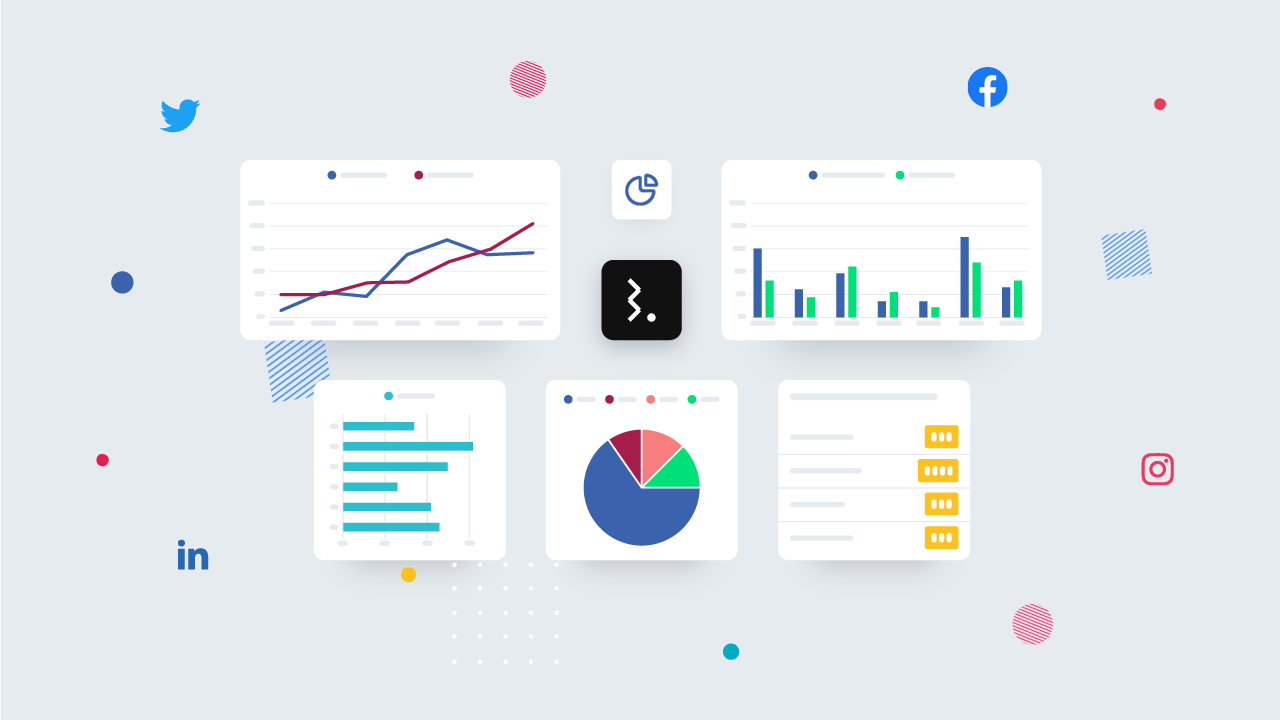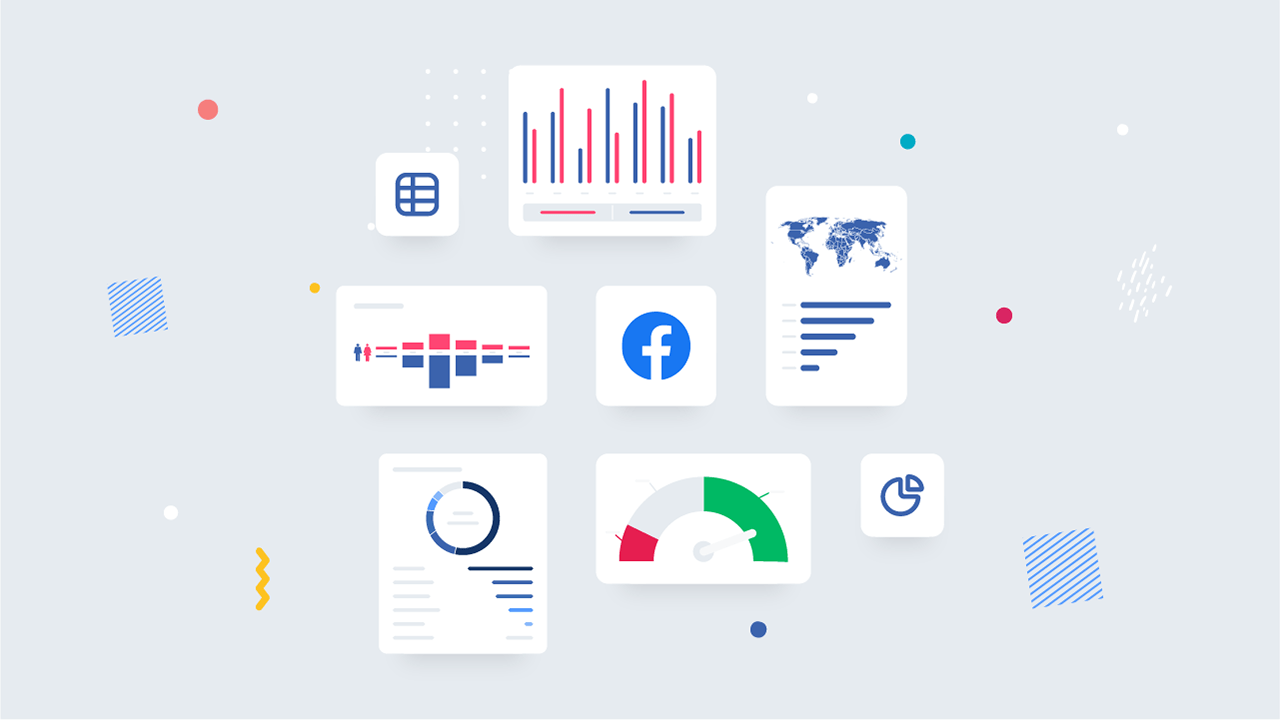In the dynamic landscape of the digital era, two powerful forces, social media and data analytics, converge to shape the way we connect, communicate, and conduct business. Let’s delve into the intricate dance between these two phenomena and explore the profound impact they have on our online experiences.
Social Media and Data Analytics

1. How Data Analytics Enhances Social Media
The integration of data analytics with social media brought forth a new era of precision. By analyzing user behavior, preferences, and engagement patterns, businesses could tailor their strategies, ensuring that content resonates with the target audience. This symbiotic relationship elevated the effectiveness of social media campaigns.
2. Examples of Successful Integration
Notable success stories abound, showcasing how data analytics transformed social media strategies. From personalized recommendations on e-commerce platforms to targeted advertising campaigns, businesses harnessed the power of data to create more engaging and relevant experiences for users.
Benefits for Businesses
1. Targeted Marketing
One of the prime advantages of combining media and data analytics is the ability to target specific demographics. Businesses can tailor their marketing efforts based on user data, ensuring that promotional content reaches the right audience at the right time.
2. Customer Insights
Understanding customer behavior is crucial for any business. Social media, when coupled with data analytics, provides invaluable insights into consumer preferences, helping businesses refine their products, services, and marketing strategies.
Challenges and Concerns
1. Privacy Issues
However, this powerful alliance raises concerns, particularly regarding privacy. The collection and analysis of personal data have sparked debates about the ethical use of information. Striking a balance between leveraging data for business benefits and respecting user privacy is an ongoing challenge.
2. Ethical Considerations
As data analytics becomes more sophisticated, ethical considerations come to the forefront. Questions about consent, transparency, and the responsible use of data challenge both businesses and policymakers to establish ethical guidelines and standards.
Social Media and Data Analytics Tools and Platforms
Popular Social Media Platforms
An array of social media platforms caters to diverse audiences. From Facebook and Instagram to Twitter and LinkedIn, each platform offers unique opportunities for engagement. Understanding the strengths and nuances of each is crucial for an effective social media strategy.
Leading Data Analytics Tools
Similarly, the landscape of data analytics tools is vast. From Google Analytics to AIM Insights, businesses can choose tools that align with their specific needs. These tools empower organizations to make data-driven decisions with real-time insights.
Real-life Examples
1. Success Stories
Several businesses have navigated the complex terrain of social and data analytics successfully. Take, for instance, the personalized recommendations on streaming platforms like Netflix or the targeted ads on social media that seem to know your preferences. These success stories underscore the transformative potential of this synergy.
2. Lessons Learned
Yet, not every integration is seamless. Learning from failures is equally important. Instances of data breaches and mishandling underscore the importance of robust data security measures and ethical considerations in this digital ecosystem.
Future Trends
1. Innovations in Social Media
As technology advances, so does the landscape of social media. Innovations such as virtual reality, augmented reality, and interactive content are shaping the future of online interaction. Businesses need to stay agile and embrace emerging trends to stay ahead of the curve.
2. Advancements in Data Analytics
On the data analytics front, machine learning and artificial intelligence are ushering in a new era of predictive analytics. The ability to forecast trends, automate processes, and derive deeper insights from complex datasets heralds a future where data analytics becomes even more integral to decision-making.
Best Practices
1. Maximizing Benefits
To maximize the benefits of this symbiotic relationship, businesses should prioritize transparency, ethical data use, and continuous adaptation to technological advancements. Regularly reassessing social media and data analytics strategies ensures relevance in a rapidly changing digital landscape.
2. Mitigating Risks
Simultaneously, mitigating risks is paramount. Robust cybersecurity measures, clear data usage policies, and proactive responses to potential challenges safeguard businesses and users alike. By being proactive, organizations can navigate potential pitfalls and build trust in the digital sphere.
Conclusion
In conclusion, the intertwining of social and data analytics has redefined how we interact, consume content, and do business. This symbiotic relationship offers unprecedented opportunities for personalization and targeted communication but comes with ethical considerations and challenges. As we navigate the future, embracing innovation, ethical practices, and a commitment to user privacy will be paramount in leveraging the full potential of this dynamic duo.
Ready to unlock the power of social media and data analytics for your business? Request a demo from AIM Technologies today.
FAQs
What is the role of data analytics in social media?
- Data analytics in social media involves analyzing user data to derive insights, enhance user experiences, and inform business strategies.
How do businesses leverage social media analytics?
- Businesses use social media analytics to understand user behavior, tailor marketing strategies, and gain insights for product development.
Are there concerns about privacy in social data analytics?
- Yes, privacy concerns arise due to the collection and analysis of personal data. Striking a balance between business benefits and user privacy is crucial.
What are the emerging trends in social and data analytics?
- Emerging trends include virtual reality, augmented reality, machine learning, and AI, shaping the future of online interaction and predictive analytics.
How can individuals pursue a career in this field?
- Individuals can pursue courses and certifications in digital marketing, social media analytics, and data science to build the necessary skills for a career in social media and data analytics.


